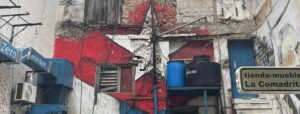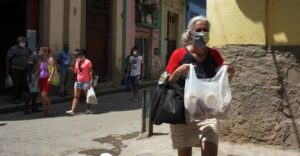By Geoff Thale
Last Thursday, May 3, the U.S. government-financed information service Radio Martí published an editorial strongly criticizing Cuban Cardinal Jaime Ortega. The editorial was read aloud on the air and published on Radio Martí’s website. It referred to the Cardinal as a “lackey” of the Cuban government. Then, on Sunday, Radio Martí pulled the editorial from their website after the statement drew attention for the unusual nature of its criticism.
The harsh tone of the editorial and its characterization of Cardinal Ortega as a “lackey” would be pretty offensive if it were written by anyone, but it is doubly offensive due to the fact that it was written by the Director of the Office of Cuban Broadcasting at the Broadcasting Board of Governors, a U.S. government organization. The Secretary of State sits on its board of directors. Though a spokesperson for the Broadcasting Board of Governors has insisted that the editorial was a signed opinion piece that represented only the personal views of the Director of the Office of Cuban Broadcasting, it is very hard to imagine that the average reader—in the United States or in Cuba—would understand it as anything other than a reflection of the views of the U.S. government.
Of course, the U.S.-funded Radio Martí is not alone in expressing criticism for the Catholic Church in Cuba. Hard-line sectors in the Cuban-American exile community called on the Pope to meet with dissidents when he was in Cuba and were frustrated that he chose a less confrontational approach in seeking to advance human rights. Now, these hard-liners have gone on the offensive, attacking Cardinal Ortega as a Castro apologist and worse.
WOLA has followed church-state issues in Cuba for many years. We disagree fundamentally with recent criticism targeting Pope Benedict and Cardinal Ortega and, more broadly, the Catholic Church in Cuba. It is true that relations between the Catholic Church and the Cuban government have improved significantly in recent years. But while the Catholic Church has not sought confrontation with the government, it has emerged as a significant voice—perhaps the most significant voice inside Cuba—calling for greater openness and debate in Cuban society. It has opted to engage with Cuba’s government through patient dialogue rather than by ultimatum or provocation. This approach has born fruit: the Church’s key role in the 2010 release of political prisoners is a dramatic example of its success in promoting human rights through dialogue.
Conservative Cuban-American political commentators certainly have the right to criticize the Cardinal if they want, and if they choose to take a disrespectful tone, they probably don’t hurt anyone but themselves. But it is a lot more troubling that an agency widely perceived to be representing the views of the U.S. government has not only criticized the Cardinal, but has done so in a pejorative manner.
In this context, it is laudable that Representative James McGovern, Representative Jim Moran, Representative Rosa DeLauro, Representative Sam Farr, and Representative Jan Schakowsky have sent a letter to the Secretary of State, urging her to “reject” the position represented by the Radio Martí editorial. WOLA joins them in urging the Obama administration to make clear that it does not share the views expressed in the Radio Martí editorial. Controversy about the role of the Catholic Church in Cuba aside, it was inappropriate and ill-advised for Radio Martí, as a U.S. government-funded information service, to write this editorial.
Geoff Thale is WOLA’s Program Director. Mr. Thale has followed issues of religious freedom in Cuba since the time of Pope John Paul II’s visit in 1998—conducting research, bringing Cuban religious leaders and scholars to the United States on a number of occasions, organizing public events on church-state relations in Cuba, and participating in a delegation of religious leaders to Cuba. More recently, Mr. Thale met with officials of the Catholic, Protestant, and Jewish communities in Cuba to discuss the Pope’s trip.


